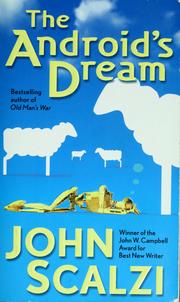Redshirts by John Scalzi
 Saturday, March 28, 2020 at 10:20PM
Saturday, March 28, 2020 at 10:20PM 
Published by Tor Books on June 5, 2012
Redshirts begins as a Star Trek spoof, premised on the notion that if a character who has never been seen before is wearing a red shirt, the character is fated to die. The story follows the Intrepid and its crew. The starship has a regular need to replenish its crew when redshirts die, which they do with some frequency to set up nonsensical plots. As John Scalzi takes pains to point out, the science in some televised science fiction (including, although not by name, the original Star Trek) is less than rigorous, something that puzzles the more scientifically inclined members of the Intrepid’s crew.
Andrew Dahl and some other characters are newly assigned to the Intrepid. The gag is that the characters, not realizing they are in a television show, are perplexed by all the things that don’t make sense, including instant acquisition of knowledge that they never had until the knowledge becomes necessary to the plot.
The concept leads to some amusing moments. Veteran crew members hide in the storage closet whenever they sense that an away mission might be imminent. They understand that if a bridge crew member goes on an away mission with a redshirt, the redshirt will die and the bridge crew member will live, but only after a dramatic scene in which the captain shakes another crew member and demands a solution to a problem before a rapidly approaching deadline. Bridge crew members survive away missions, although one of them inevitably suffers a serious injury before his health is miraculously restored.
Andrew eventually puzzles out the fact that he is in a television show and that the Narrative is created in some other universe. Benefitting from the non-science that governs his existence, Andrew travels to the universe in which the show is made to do something about his fate. The story is a one-note gag but Scalzi milks it for some funny scenes.
The novel makes up for its silliness in the three codas that follow the main story. The first, focusing on the screenwriter who kills crewmembers on the Intrepid, lambasts screenwriters for their laziness. Really, if you’re going to write science fiction, you should make at least a half-assed effort to get the science right. You might also want to avoid predictable plots, like having a redshirt killed by a space monster every week. After all, plenty of good television shows (including some science fiction shows) manage to churn out a quality episode every week, one that’s based on human drama rather than predictable confrontations with aliens. The press of time and working in an unfairly maligned genre shouldn’t excuse writing like a hack.
The second coda follows up on the life of a character in the universe where the television show is written. Although a motorcycle left him incapacitated before Andrew arrived in his universe, he has been given a new life. In the novel’s most serious moment, he questions whether he had more value as an organ donor in his former existence than he has as a functioning human. A message from his other-universe self makes him realize that he shouldn’t blow his chance to become the master of his own fate.
The third coda addresses death and loss. It’s almost as good as the first two, if a bit sappy at the end. The codas are the kind of solid, contemplative writing that Scalzi can do when he’s not trying to be funny.
I’m not sure why Redshirts won a Hugo, although the only other nominee from that year I’ve read (2312) wasn’t great. Maybe it was a slow year. Still, Redshirts has earned a good bit of praise over the years, and given the way the codas balance the humor, a measure of praise is merited.
RECOMMENDED


